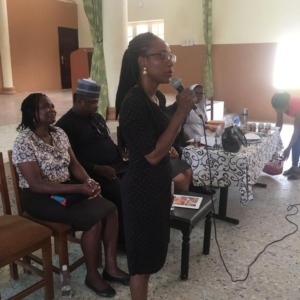Inclusive Education Project
Introduction: The Inclusive Education Project is aimed at improving access to quality and inclusive education at all levels in Nigeria. The project utilizes advocacy efforts and provides guidance on replicable models/strategies to relevant education stakeholders across Nigeria. The project seeks to create accessible and conducive environments that will foster learning and inclusion for all persons.

Project Objectives: The project’s main objectives were to:
- Improve access to quality and inclusive education for all persons in Nigeria, including those with disabilities.
- Advocate for the creation of accessible and conducive environments that foster learning and inclusion.
- Provide guidance on replicable models/strategies for relevant education stakeholders.
Project Implementation: The project was implemented in three phases:
Phase 1: Planning and Strategy Development During this phase, the project team developed the project’s strategy, including the target audience, messaging, and delivery channels. The team also identified potential partners and collaborators, including relevant education stakeholders, to support the project’s implementation.
Phase 2: Implementation and Advocacy The second phase involved the actual implementation of the project. The project team collaborated with relevant education stakeholders to advocate for the creation of accessible and conducive environments that foster learning and inclusion. The team provided guidance on replicable models/strategies to support inclusive education practices.
The team organized sensitization events and workshops across Nigeria to raise awareness of the importance of inclusive education practices. These events included the participation of experts and advocates who shared their experiences and insights on inclusive education practices.
Phase 3: Monitoring and Follow-Up The final phase of the project involved monitoring and follow-up efforts to track the progress of inclusive education practices in various organizations and communities. The project team followed up with relevant education stakeholders to ensure that they adopted inclusive education practices and provided support where needed.
Project Outcomes: The Inclusive Education Project has achieved significant outcomes since its launch. Some of the notable outcomes include:
- Increased Awareness: The project has succeeded in raising awareness of the importance of inclusive education practices in various sectors, including education, healthcare, and employment.
- Policy Changes: The project’s advocacy efforts have led to the adoption of inclusive education policies and practices by various education stakeholders, including government agencies.
- Collaboration and Partnerships: The project has fostered collaboration and partnerships with various organizations, including relevant education stakeholders, to support inclusive education efforts.
- Impact on Communities: The project has had a positive impact on communities by providing access to quality and inclusive education for all persons, including those with disabilities.

Conclusion: The Inclusive Education Project has made significant strides in promoting inclusive education practices in Nigeria since its launch. The project’s success is attributed to its focus on advocacy, collaboration, and partnerships. The project team remains committed to continuing its efforts to improve access to quality and inclusive education for all persons in Nigeria.

Add Comment